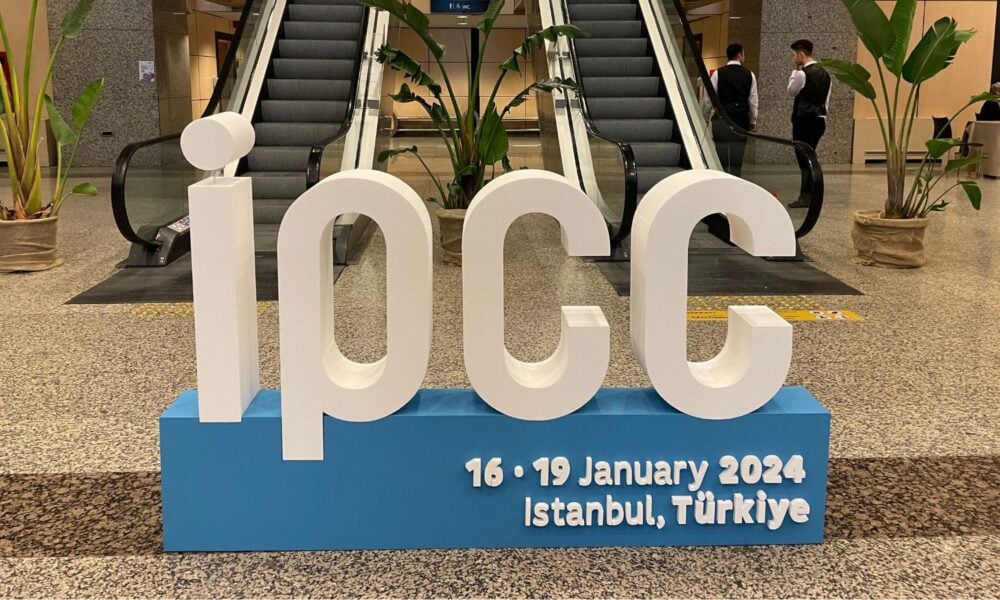The 60th session of the Intergovernmental Panel on Climate Change (IPCC) concluded on Friday, culminating in a marathon 26-hour final session that underscored the urgency and complexity of global climate discussions. As I outlined in my day-one blog, the opening session of the 7th assessment of the IPCC (AR7) last week in Istanbul aimed to address four key questions, but many of these were deferred to the next session as delegates engaged in rigorous debate about what reports they should produce and more importantly, when they would be completed. The IPCC always produces scientific reports, but the structure, topics, and timelines of these reports are not set in stone and were the subject of intense discussion and negotiation.
So, what exactly transpired?
Key Decisions and Outcomes
The meeting was defined by a nearly week-long debate over the timeline for the main assessment reports, as some countries asked for a shortened cycle in order to produce robust and comprehensive reports in time to inform the UNFCCC’s 2028 Second Global Stocktake (GST)—an accounting of nations’ collective progress toward meeting the goals of the Paris climate agreement. Ultimately, a 2028 timeline for the foundational reports was viewed by some delegates as unachievable or undesirable. Roughly 15 hours after the meeting was supposed to end, a last-gasp consensus was finally reached to retain the existing structure of the core IPCC reports—three working group reports on the scientific basis of climate change impacts, adaptation and vulnerability, and mitigation of heat-trapping emissions, followed by a synthesis report to help inform global policymaker actions. A decision on the release date of the working group reports was punted to a subsequent meeting while the synthesis report is slated to be completed by late 2029.
The panel did confirm the inclusion of a special report on climate change and cities (for which a scoping meeting will take place later in 2024) and a methodology report on short-lived climate forcers—such as methane—both slated to be published in early 2027. These reports will be instrumental for guiding policy decisions on specific, yet critical, areas of climate change. The IPCC also decided to organize an expert meeting on carbon dioxide removal technologies. This will be developed further in future meetings and will lead to another methodology report by the end of 2027.
Without making decisions on more specific topics, the panel recognized the importance of formal IPCC expert meetings and workshops as platforms for in-depth discussions and insights on emerging and critical topics. We will likely see proposals for additional expert gatherings at the next meeting this summer.
In response to a clear call from several countries, championed by Kenya, a distinct product will revise and update the 1994 IPCC technical guidelines on impacts and adaptation, offering updated adaptation indicators, metrics, and methodologies. The timeline for this report is tied to the larger working group report on adaptation and vulnerability.
There was also a push for improved inclusivity by engaging globally diverse scientific literature and authors. After tireless advocacy from Bolivia, the panel decided, to highlight the need to include indigenous and local knowledge. My colleague, Adam Markham, contributed to this discussion with a presentation to the IPCC about the need for greater attention to culture and heritage, including Indigenous science and Indigenous knowledge, for understanding the toll of loss and damage, climate mitigation, and climate adaptation and resilience. Diverse voices bring not only fresh perspectives but also the potential for new ideas about adaptation and climate solutions.
The Core Debate Over Timing
The timing of the working group reports dominated the discussion. Just weeks after the UN climate negotiations and the first GST, this IPCC meeting unfolded at a pivotal moment in the ongoing dialogue between science and policy and asked the question: Should scientific endeavors align with policy timelines? The challenge is stark—the IPCC’s historic six- or seven-year report cycle is out of step with the five-year intervals of the GST, an essential review under the Paris Agreement. In the room, it felt as though the majority of nations wanted to align the processes to ensure that a robust, comprehensive review of the current climate science would be available to policymakers, but the IPCC is a consensus group and, in the end, a few countries held out in refusing a 2028 timeline. As it stands now, the decision about the timing of the reports will be made this summer, but it’s important to understand that delaying this decision may make a 2028 deadline for the reports impossible given the already tight timeframe.
The case for aligning science with policy timelines is compelling, especially in the dynamic landscape of climate change. During the meeting, we were assured by the scientists in charge of organizing these key reports that this alignment was possible without diluting scientific rigor. Still, countries pushed back. Publishing IPCC reports in time to inform the GST is about enhancing the relevance and impact of our scientific work.
The Importance of Timely, Policy-Relevant Science
The decisions made at this meeting, while not as ambitious as many of us hoped, nonetheless set the stage for a more responsive and relevant IPCC. It’s clear that our collective fight against climate change hinges not just on the robustness of our science but also on its timeliness and relevance to decisionmakers. The path forward requires a nuanced understanding that science, while independent, does not operate in a vacuum. Our science must be attuned to the rhythms of policymaking, echoing the needs and urgencies of the hour. I hope the international scientific community can adapt to meet calls from decisionmakers. In this crucial decade, as we strive to meet the goals of the Paris Agreement, let’s ensure that our science is not just rigorous but also resonant, not just accurate but also actionable.

